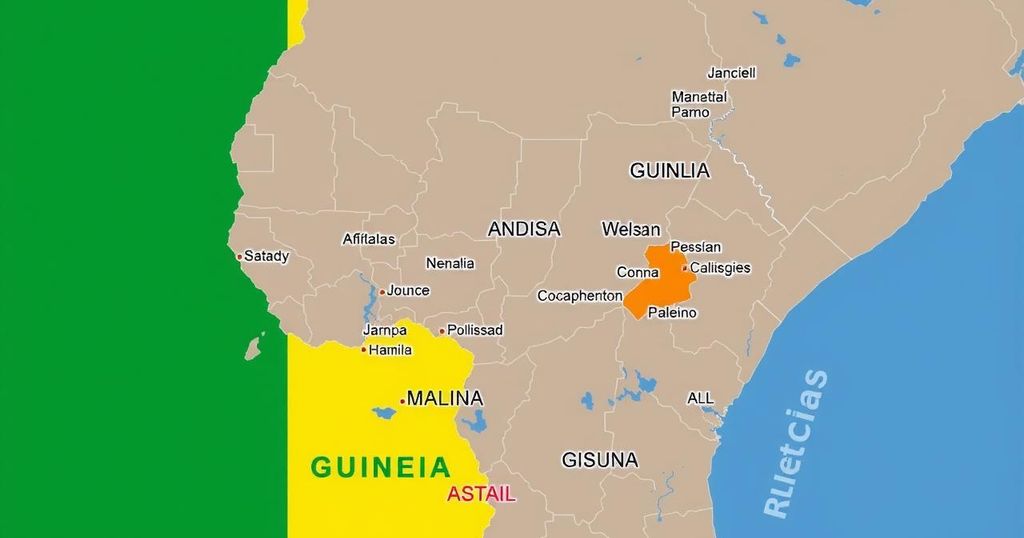Indefinite Postponement of Elections Deepens Political Turmoil in Guinea Bissau
President Umaro Sissoco Embalo has indefinitely postponed legislative elections in Guinea Bissau, originally set for November 24, exacerbating the country’s political instability. Financial and logistical challenges were cited by officials, and no new date has been determined amidst ongoing tensions with opposition parties. The nation continues to struggle with a history of coups and governance challenges since its independence from Portugal.
On Monday, Guinea Bissau’s President Umaro Sissoco Embalo announced the indefinite postponement of the legislative elections originally scheduled for November 24. This decision adds to the ongoing political instability in the small West African nation, which has faced significant hurdles since Embalo dissolved parliament following armed conflicts, labeled as an attempted coup, in December 2023. The logistical challenges and financial constraints cited by governmental officials further complicate the electoral process. In response to expectations of postponement, President Embalo had indicated on Saturday that he would officially announce the deferral. On Monday, he canceled the previous decree establishing the election date, with his political adviser, Fernando Delfim da Silva, confirming this development. However, a new timeline for the elections has yet to be determined, leaving the nation in a state of uncertainty regarding the political future. The indefinite delay of the elections is further exacerbated by questions surrounding the presidential election that would succeed Embalo’s term. The African Party for the Independence of Guinea and Cape Verde (PAIGC), which has maintained a parliamentary majority since elections in June 2023, has been a source of tension in the current political landscape. As one of the poorest countries globally, Guinea Bissau also faces significant financial difficulties in organizing the elections, highlighting its persistent political turmoil following a history of coups since independence from Portugal. President Embalo’s presidency, initiated in December 2019, has been fraught with challenges regarding electoral processes and governance, continuing the cycle of instability that the country has struggled to overcome. A definitive resolution to the electoral situation remains critical for laying the groundwork for a more stable political environment in Guinea Bissau.
Guinea Bissau, a small nation in West Africa, is characterized by its political instability and a series of governance challenges since gaining independence from Portugal. The country has been plagued by coups and a history of corruption, contributing to its classification as one of the poorest nations globally. The political landscape has witnessed tensions between various parties, notably the African Party for the Independence of Guinea and Cape Verde (PAIGC), which has historically opposed President Umaro Sissoco Embalo. The dissolution of parliament in December 2023 set the stage for new elections; however, logistical and financial hurdles have indefinitely postponed these plans, keeping the nation in a state of uncertainty regarding future governance.
The indefinite postponement of legislative elections in Guinea Bissau highlights the ongoing political instability and challenges facing the nation. President Umaro Sissoco Embalo’s administration continues to grapple with the ramifications of previous conflicts, financial constraints, and a fraught political atmosphere with the opposition PAIGC. As the country seeks a pathway toward democratic governance, the lack of a new election timeline signals persistent uncertainty in the political arena, emphasizing the need for effective solutions to restore stability and legitimacy.
Original Source: punchng.com




Post Comment